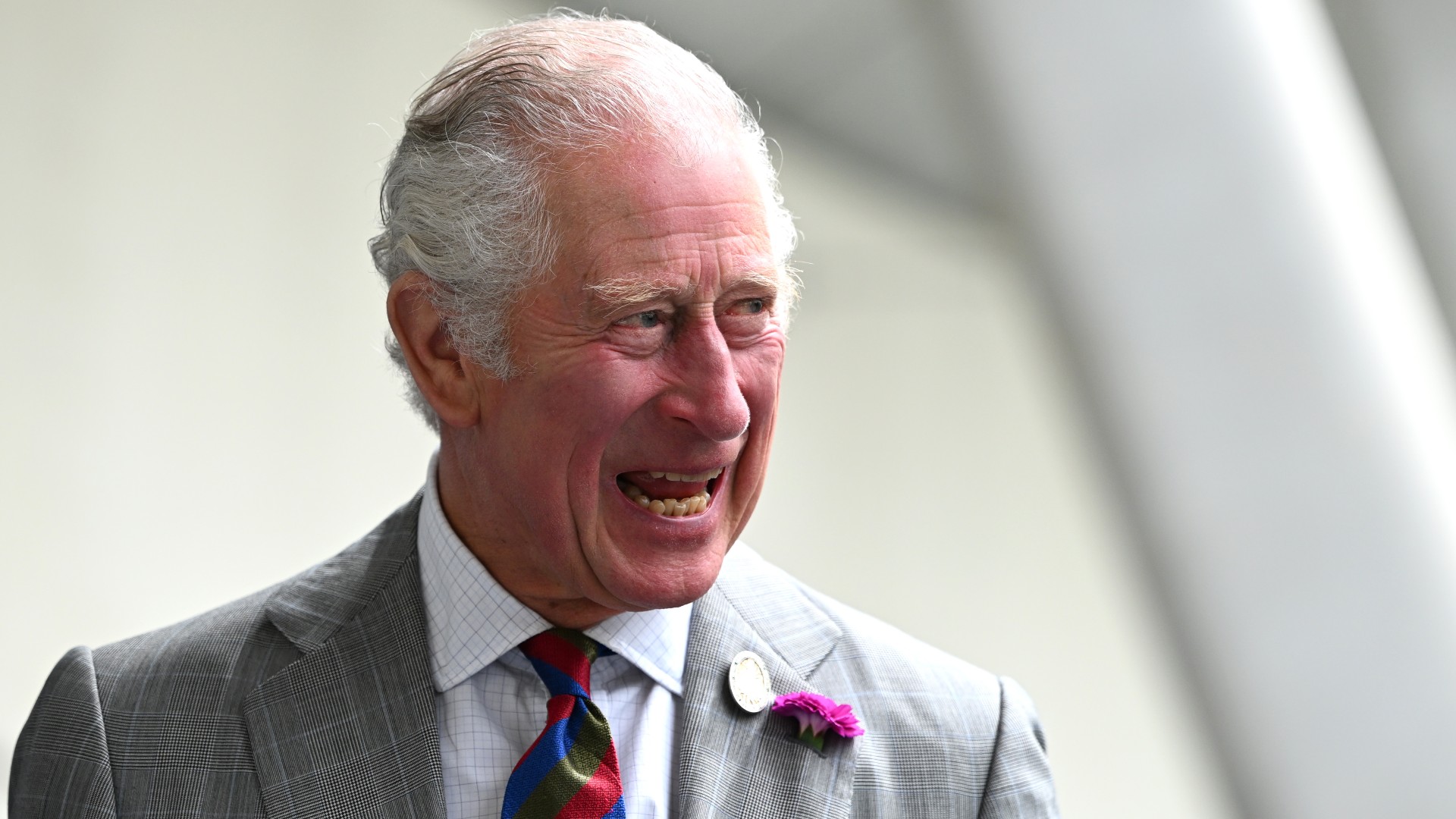Prince Charles Becomes "King Charles III"
It was thought that the new King could take the name "King George VII."


Update, 9/8: The Queen has passed away peacefully at her home in Balmoral at the age of 96. Following her death, her eldest born, Charles, made a statement acknowledging her death and the fact that his mother was deeply cherished by so many. Upon her death, Charles immediately became king, with his office, Clarence House, confirming that he will henceforth be known as King Charles III. This story has been updated.
Original story: When Marie Claire reported in April that Prince Charles might not choose to become King Charles III when he ascends to the throne, we didn’t offer up a name he might choose in its place. We are used to our monarch going by her own name—Queen Elizabeth was born Princess Elizabeth Alexandra Mary—but her father, born Prince Albert Frederick Arthur George and known as “Bertie,” chose to become King George VI when he was crowned. (It is said that monarchs can choose their regnal name from any of their names—and royals tend to have at least three to choose from.)
That said, The Express is reporting that Charles (whose full name is Prince Charles Philip Arthur George) might be known as King George VII as king.
“There have been two previous kings with the name Charles, but they had very dubious reputations, which may put the heir to the throne off using his own name when he becomes king,” the outlet reports.
Quick history lesson: King Charles I is best known for being overthrown by Oliver Cromwell following the victory of Parliament over the Crown in the English Civil War in 1645. “He was also a strong believer in the divine right of kings, meaning that he was appointed by God and wasn’t answerable to Parliament,” The Express reports. This belief did not end well for him—he was put on trial for treason, found guilty, and beheaded in 1649. Yikes. It also led to an 11-year stretch, from 1649 to 1660, that was the only time in England’s history that it was without a monarch, as Oliver Cromwell ruled, followed by his son, Richard.
Then, in 1660, Charles I’s son, appropriately named Charles II, returned from exile, and the monarchy was restored. Butttttt, this Charles wasn’t without his own proclivities. His controversial private life included multiple mistresses—insert obvious comparisons between King Charles II and our modern-day Prince Charles.
“Although Prince Charles could use his own name and become King Charles III, it is thought that he may wish to avoid the negative connotations from the previous two Charles’,” The Express reports. “The prince will also follow the longest-reigning monarch in British history, so may wish to avoid anything that could cast him in a negative light.”
Get exclusive access to fashion and beauty trends, hot-off-the-press celebrity news, and more.
It wasn’t just Charles’ grandfather, King George VI, who opted to do this. One of Britain’s most famous monarchs, Queen Victoria, was born Princess Alexandrina Victoria, but thought Alexandrina was too foreign sounding for a British queen and opted to use her middle name when she was crowned in 1837.
When King George VI became king in 1936—following his older brother’s scandalous abdication—choosing to go by George was a nod to his father King George V’s reign, which lasted from 1910 to 1936. King George VI died at just 56 years old in 1952, and to the present day is generally remembered fondly, which could factor into Charles’ decision to take the name George when it is his time on the throne.
“With the generally positive legacy of King George VI in the public consciousness, Prince Charles may decide to style himself as King George VII,” The Express reports.
And, assuming he uses his own first name, a King George VIII won’t be far behind him, as Prince George—who just turned nine—is currently third in line to the throne.

Rachel Burchfield is a writer, editor, and podcaster whose primary interests are fashion and beauty, society and culture, and, most especially, the British Royal Family and other royal families around the world. She serves as Marie Claire’s Senior Celebrity and Royals Editor and has also contributed to publications like Allure, Cosmopolitan, Elle, Glamour, Harper’s Bazaar, InStyle, People, Vanity Fair, Vogue, and W, among others. Before taking on her current role with Marie Claire, Rachel served as its Weekend Editor and later Royals Editor. She is the cohost of Podcast Royal, a show that was named a top five royal podcast by The New York Times. A voracious reader and lover of books, Rachel also hosts I’d Rather Be Reading, which spotlights the best current nonfiction books hitting the market and interviews the authors of them. Rachel frequently appears as a media commentator, and she or her work has appeared on outlets like NBC’s Today Show, ABC’s Good Morning America, CNN, and more.